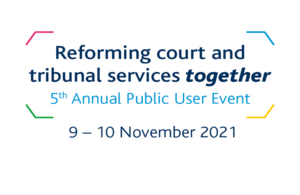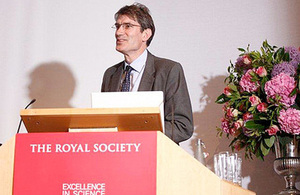UK-Sudan Strategic Dialogue
Press release
Communique of the first meeting of the re-launched UK-Sudan Strategic Dialogue, which was hosted by the Government of Sudan in Khartoum on 19 and 20 October.

The first meeting of the re-launched UK-Sudan Strategic Dialogue was co-chaired by Sudanese Undersecretary of the Ministry of Foreign Affairs Mohamed Sharief Abdalla, and UK Minister for Africa Vicky Ford. Sudanese Minister of Foreign Affairs, Dr. Mariam Alsadig Almahadi, opened the meeting and delivered welcoming remarks emphasizing the importance of the Dialogue in further strengthening and consolidating the developing bilateral relations between Sudan and the United Kingdom. The meeting was the first in the UK-Sudan Strategic Dialogue since the December 2018 revolution; reflecting renewed and refreshed bilateral engagement as Sudan transitions to democracy, as well as our deep and longstanding ties. In particular, in the same week of the anniversary of the Security Council Resolution on Women, Peace and Security, the Minister for Africa paid tribute to the role that Sudanese women, including the Minister for Foreign Affairs, played in the revolution. The Strategic Dialogue followed an agreement between Prime Minister Abdalla Hamdok and former UK Foreign Secretary Dominic Raab during a visit to Sudan in January 2021, to discuss UK support to the transitional government’s goals, including UK support to economic reforms, and to strengthen bilateral cooperation in different spheres. Senior officials from both sides participated also in the meeting. Both sides emphasised the importance attached to their shared history, people to people links and affirmed their commitment to the bilateral relationship. The meeting, which included agreement on a number of areas of cooperation, involved a productive exchange of views concerning the civilian-led transition to democracy and UK support to transitional institutions; delivering justice and accountability, including positive engagement between the Government of Sudan and the International Criminal Court; regional affairs; and UK support to economic reforms and promoting investment into Sudan, including on renewable energy. Constructive discussions covered also peace and stability and how the UK can be a supportive partner on implementing the Juba Peace Agreement; on UK-Sudan cooperation in the education sector; on enhancing cooperation and support on irregular migration, returns and readmission; and on defence engagement. Key announcements at this year’s Strategic Dialogue include:
-
An InfraCo Africa visit in November to scope opportunities for private sector investment into Sudan.
-
British Council support to the development of a five-year strategy for the Ministry of Higher Education, for improving English language at public universities.
-
An additional UK £20m humanitarian assistance to benefit the poorest in Sudan.
-
UK support to safe drinking water to 40,000 people in the city of Port Sudan.
During her visit, the Minister hosted a roundtable discussion with women engaged in Sudan’s transitional processes through their work as politicians, activists, artists and professionals. The Minister paid tribute to the role of women, and the importance of women in Sudan’s political transition. Both sides welcomed the convening of the Strategic Dialogue and agreed that the next meeting should take place in 6 months, in London.
Published 20 October 2021

